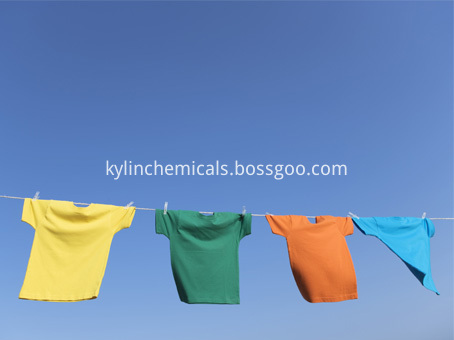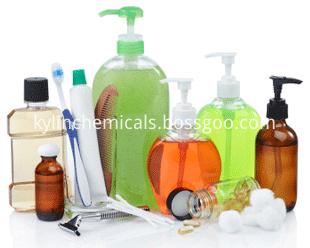1. The centrifugal pump should be selected according to the liquid to be transported, and check the required performance, analyze the suction and discharge conditions, whether it is intermittent operation or continuous operation, etc. The centrifugal pump should usually be at or near the pressure and flow specified by the manufacturer. Run under conditions. The following review should be performed when the pump is installed:
1 The basic dimensions, position and elevation should meet the design requirements. The anchor bolts must be properly and correctly fixed in the concrete foundation. The machine should not have missing parts, damage or rust;
2 According to the characteristics of the medium to be transported by the pump, the material of the main parts, shaft seals and gaskets should be checked if necessary;
3 The leveling of the pump shall be in accordance with the provisions of the technical documents of the equipment. If there is no regulation, it shall comply with the provisions of the current national standard “General Specification for Construction and Acceptance of Mechanical Equipment Installation Engineeringâ€;
4 All pipes connected to the pump body, installation of pipe fittings and cleaning requirements of lubricating oil pipes shall comply with the relevant national standards.
2, the use of centrifugal pumps
The test run of the pump should meet the following requirements:
1 The steering of the drive should be the same as the steering of the pump;
2 Identify the steering of the pipeline pump and the coaxial pump;
3 The fixed joints should be free from looseness. The specifications and quantity of lubricants for each lubrication part should meet the requirements of the equipment technical documents;
4 The parts with pre-lubrication requirements shall be pre-lubricated as required;
5 All indicating instruments and safety protection devices should be sensitive, accurate and reliable;
6-disc should be flexible and free of abnormalities;
7 The high temperature pump should be preheated before the test run, the temperature should rise evenly, the temperature rise per hour should not exceed 50 °C; the temperature difference between the surface of the pump body and the process pipe with working medium inlet should not exceed 40 °C;
8 Set the connection device to eliminate the influence of temperature rise, and set the bypass connection device to provide cooling water source.
Pay attention to the following points when operating:
1 It is forbidden to run without water, do not adjust the population to reduce the displacement, and prohibit running under too low flow rate;
2 Monitor the operation process, completely prevent the stuffing box from leaking, and use new packing when replacing the stuffing box;
3 to ensure that the mechanical seal has a fully flushed water flow, water-cooled bearings are prohibited from using excessive water flow;
4 Do not use too much lubricant;
5 Check according to the recommended cycle. Establish operational records, including hours of operation, adjustment and replacement of packing, addition of lubricants and other maintenance measures and time. Pumping and discharge pressure on centrifugal pumps, flow, input power, washings and The temperature and vibration of the bearing should be measured regularly.
6 The main engine of the centrifugal pump relies on atmospheric pressure to pump the water at a low position to the high point, while the atmospheric pressure can only support a water column of about 10.3m at most, so the main engine of the centrifugal pump can not work 12 meters away from the water surface.
3. Maintenance of centrifugal pump
3.1. Analysis of failure of mechanical seal of centrifugal pump
Centrifugal pump shutdown is mainly caused by the failure of mechanical seals. The failure performance is mostly leakage, the reasons for leakage are as follows:
1 leakage of the static sealing surface of the static ring, the main reasons are: the flatness of the end face, the roughness does not meet the requirements, or the surface is scratched; there are particulate matter between the end faces, causing the two end faces not to operate in the same way; the installation is not in place, the way is not correct.
2 compensation ring seal leakage, the main reasons are: gland deformation, pre-tightening force is uneven; installation is not correct; seal ring quality does not meet the standard; seal ring selection is wrong.
The actual use results show that the most ineffective part of the sealing element is the end face of the moving and stationary ring, the machine is sealed, and the crack on the end face of the static ring is a common failure phenomenon. The main reasons are:
1 When the sealing surface is too large, the flushing fluid can't take away the heat generated by the friction pair; the flushing liquid leaks away from the gap of the sealing surface, causing the end face to overheat and damage.
2 The liquid medium vaporizes and expands, so that the two end faces are separated by the vaporization expansion force. When the two sealing faces are pressed together, the lubricating film is broken and the end surface is overheated.
3 The liquid medium has poor lubricity, and the operating pressure is overloaded. The two sealing surfaces are not synchronized. For example, the high speed pump speed is 20445r/min, the sealing surface center diameter is 7cm, and the line speed is up to 75 m/s after the pump is running. When there is a sealing surface lag can not track the rotation, the instantaneous high temperature causes the sealing surface to be damaged.
4 sealed flushing fluid orifice plate or filter blockage, resulting in insufficient water, so that the machine seal failed.
In addition, the sealing surface surface of the sliding groove, the gap when the end surface is attached, the sealing element fails, the main reasons are:
1 The liquid medium is not clean, there are tiny hard particles, sliding the sealing surface at a high speed, and scratching the surface of the end surface and failing.
The pumping parts of the 2 pump are poor in coaxiality. After the pump is turned on, the end face is shaken once every revolution, and the running track of the moving ring is not concentric, causing the end face to vaporize and overheat and wear.
3 The frequent occurrence of hydraulic characteristics of the liquid medium causes the pump unit to vibrate, causing the sealing surface to be misaligned and fail.
The liquid medium corrodes the sealing element, stress concentration, soft and hard material coordination, erosion, auxiliary sealing 0-ring, V-ring, concave ring is incompatible with liquid medium, deformation, etc. will cause mechanical seal surface damage failure, so The damage form should be comprehensively analyzed to find out the root cause and ensure that the mechanical seal runs for a long time.
3.2. Requirements after the centrifugal pump is stopped
1 After the centrifugal pump stops running, the pump's population valve should be closed. After the pump is cooled, the valve of the auxiliary system is closed.
2 High-temperature pump parking should be carried out according to the provisions of the equipment technical documents. After parking, it should be half-turned every 20 to 30 minutes until the pump temperature drops to 50 °C.
3 When the cryopump is parked, when there is no special requirement, the pump should always be filled with liquid; the suction valve and the discharge valve should be kept normally open; the cryopump with double mechanical seal, the liquid level controller and the sealing liquid in the pump seal chamber The grouting pressure of the pump should be maintained.
4 Transportation of pumps that are easy to crystallize, easy to solidify, easy to precipitate, etc., should prevent clogging after stopping the pump, and flush the pump and pipeline with water or other medium in time. 5 Discharge the liquid accumulated in the pump to prevent rust and cracking.
3.3, the storage of centrifugal pumps
1 The pump that has not been installed should be coated with a suitable rust inhibitor on the unpainted surface. The oil-lubricated bearing should be filled with the appropriate oil. The grease-lubricated bearing should only be filled with a grease. Use mixed grease.
2 pumping clean liquid, flushing, suction line, discharge line, pump casing and impeller for a short time, and draining the pump casing, the suction line and the flushing liquid in the discharge line.
3 rows of net bearing housing oil, then add clean oil, thoroughly clean the grease and refill the new grease.
4 Seal the suction and discharge ports, store the pump in a clean, dry place, protect the motor windings from moisture, and spray the inside of the pump casing with anti-rust liquid and anti-corrosion liquid.
5 The pump shaft rotates once a month to avoid freezing and lubricate the bearings.

Concerned about surprises
Label: Selection and installation of centrifugal pump for centrifugal pump centrifugal pump
Previous: How to calculate the torque of the valve Next: The scope and use of the magnetic pump
Kylin Chemicals manufactures & supplies high performance Acrylic dispersant polymers & thickeners, serves a variety of use in the following applications.
Detergents and Laundry
- Acrylic acid - Maleic acid copolymer, counterparts for BASF Sokalan CP45, Sokalan CP5, Sokalan CP7, Acusol 497N
- Acrylic acid homopolymer, counterparts for BASF Sokalan PA 25 CL, DOW Acusol 445, Acusol 445N

Cosmetics and Personal Care
- Cross-linked polyacrylate polymer, counterparts for Carbomer 934, Carbomer 940, Carbomer 941, Carbomer 980, Carbomer 981, Carbomer 1342, Carbomer 1382 and Carbomer 2020, etc.

Our advanced DCS manufacturing systems, advanced analytical instruments and quality systems assure the quality, stability and sustainability to your supply chain needs.
Acrylic Dispersant Polymers & Thickeners
Acrylic Dispersant Polymers,Acrylic Dispersant Thickeners,Ethylene Diamine Tetraacetic Acid,Kl Carbomer
Kylin Chemicals Co., Ltd. , http://www.kylin-chemicals.com